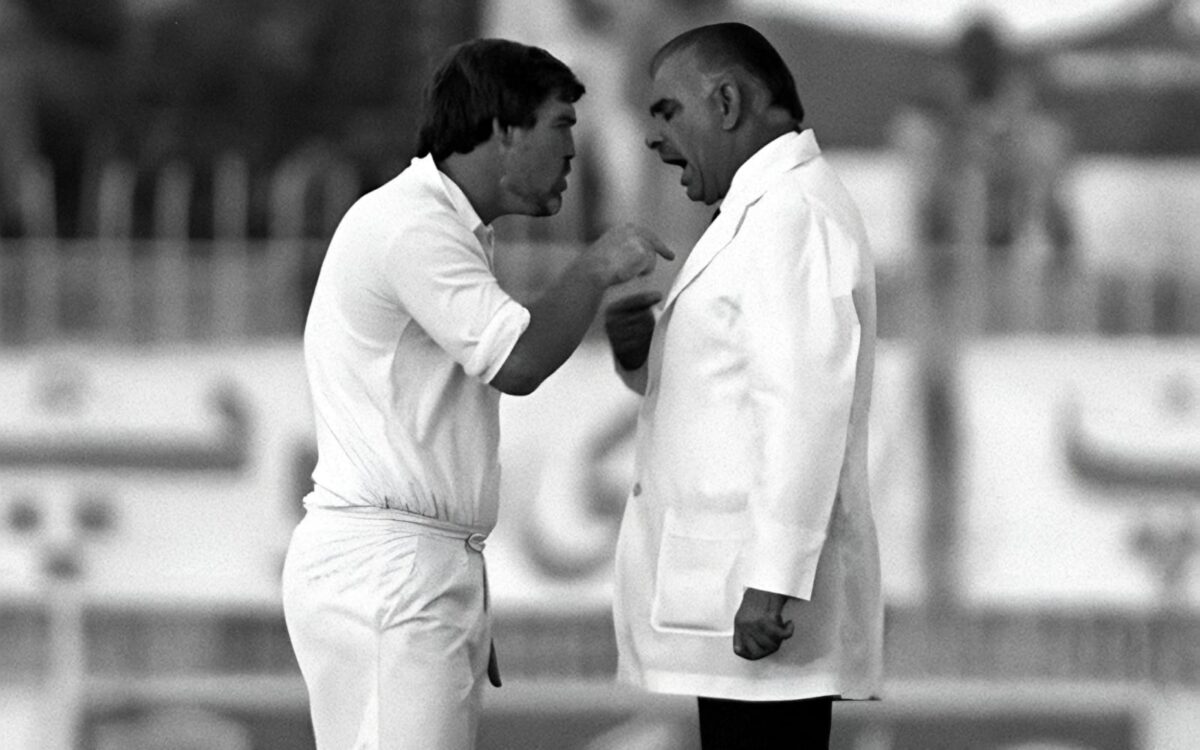More Than Just Matches Officiated
Shakoor Rana, a Pakistani umpire who officiated in 18 Tests and 22 ODIs, will always be remembered in cricket history.
However, his legacy is not defined by the number of matches he umpired, but rather by a single, highly controversial incident.
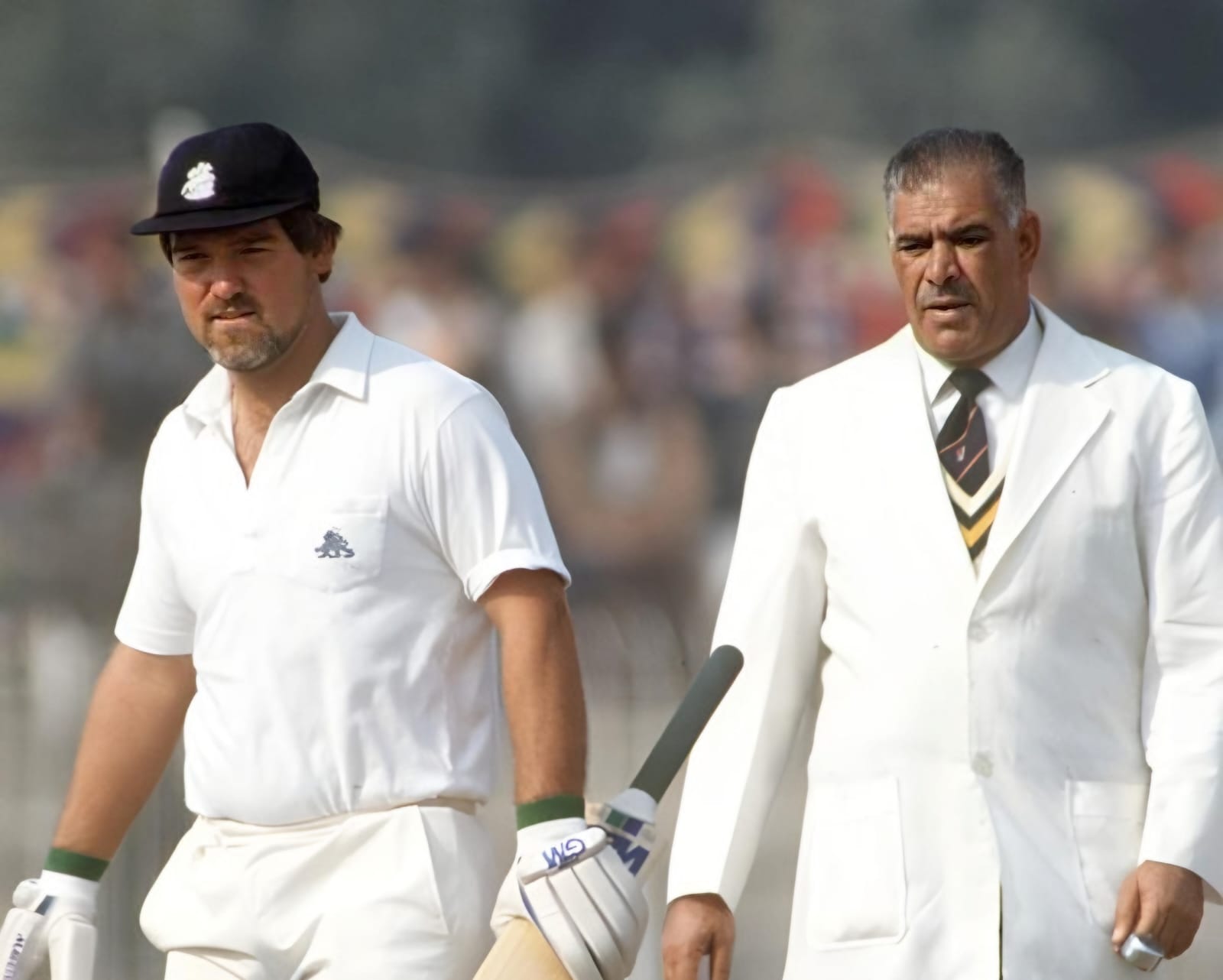
Shakoor Rana: Funny Anecdote and Controversies
The legacy of Shakoor Rana, one of cricket’s most controversial umpires, is filled with memorable and contentious incidents. Perhaps the most famous occurred during the second Test between Pakistan and England in Faisalabad in December 1987.
“He’s lucky I didn’t beat him,”
Shakoor Rana
Above quote was recalled after a furious altercation with England skipper Mike Gatting, a dispute so heated it nearly severed diplomatic ties between the two nations.
Rana’s notoriety followed him beyond the pitch. Before his death in 2001, a British tabloid paid him £7000 to fly to London and surprise Gatting outside Lord’s. “I went to shake his hand,” Rana grinned. Gatting Replied:
Oh God, Not you again and drove away
Controversies
Gatting’s irritation with Rana began earlier in the series when the umpire wore a Pakistan sweater while officiating.
This incident wasn’t an isolated one; Rana had previously warned India’s Mohinder Amarnath for running on the wicket, leading vice-captain Sunil Gavaskar to accuse him of double standards for not penalizing Pakistan’s Sarfaraz Nawaz who did the same.
In 1984, New Zealand’s Jeremy Coney even threatened to boycott a match after Rana controversially ruled Javed Miandad not out.
These events left a lasting impression on cricket fans. At an MCG match in 1988, a spectator humorously shouted, “Hey Gatting, what was the name of that Pakistani umpire again?” eliciting laughter from the crowd.
Rana’s controversial reputation was reminiscent of an earlier bizarre incident in 1956 involving another Pakistani umpire, Idris Baig. English captain Donald Carr and his teammates kidnapped Baig, doused him with cold water, and returned him drenched, a prank described as one of the most unwise decisions in cricket history.
Such anecdotes paint a vivid picture of Rana’s tumultuous career, highlighting the intense passion and occasional absurdity that cricket can evoke.
The Faisalabad Test: A Spark That Ignited Controversy
In 1987, during the Faisalabad Test against England, Rana became embroiled in a heated argument with England captain Mike Gatting.
This debate, which led to a stoppage of play, is considered one of the most talked-about incidents in cricket history.
A Missed Reunion and Lingering Disappointment
In 2000, when England toured Pakistan for the first time since the 1987 incident, Shakoor Rana met with English cricketers, officials, and journalists.
The incident resurfaced in the media, and Rana expressed disappointment that Mike Gatting was not part of the touring team.
The controversy was even compared to the infamous Bodyline series of 1932–33, highlighting its lasting impact.
Tensions Rise: Fallout from a Previous Tour
English cricket experts believe that the controversial umpiring of the 1987 series was a result of the disappointment of Pakistan’s earlier tour of England.
Then Pakistan had requested that David Content and Ken Palmer should not be made umpires but England did not agree. There were many other controversies over umpiring.
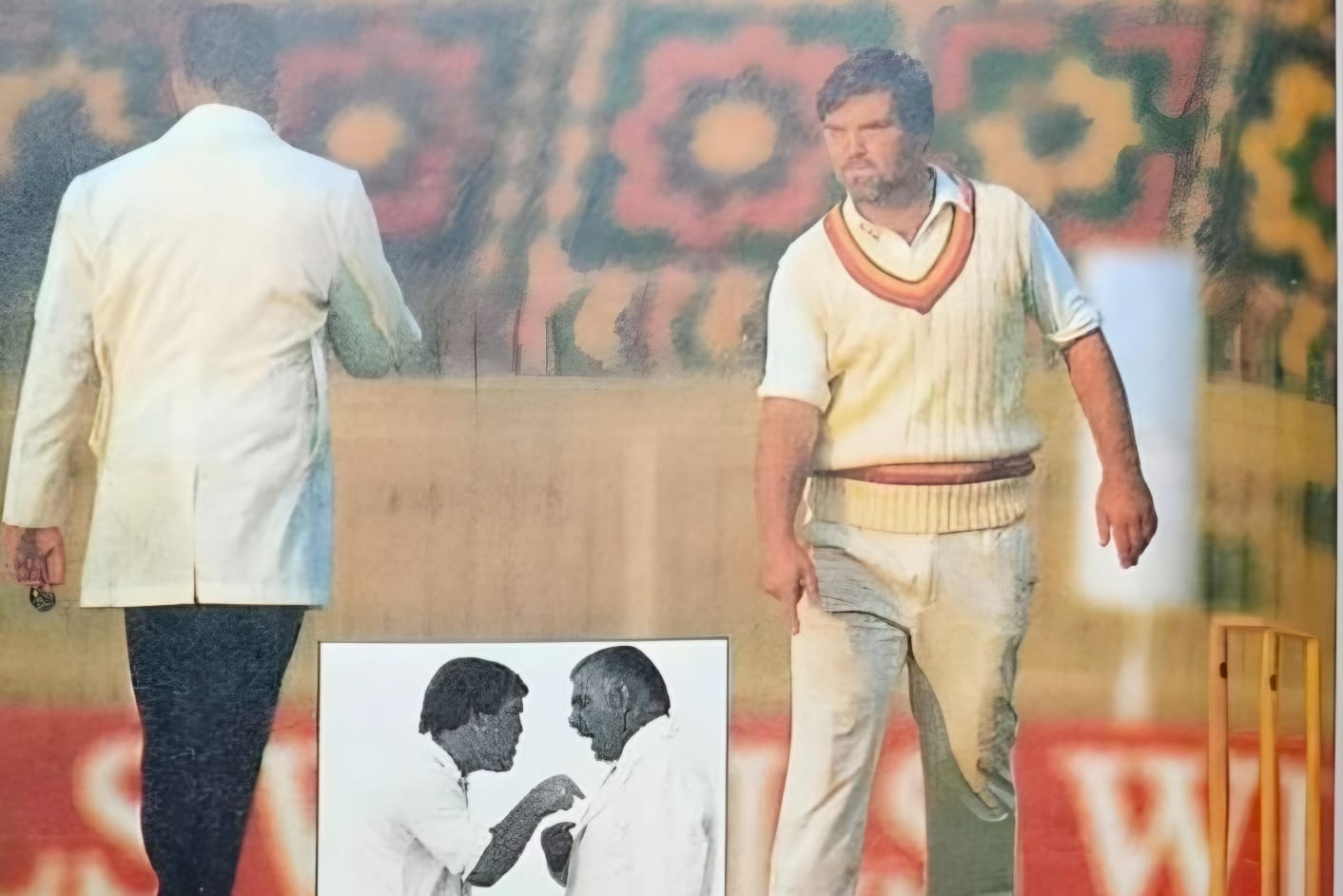
After the first Test of the series played after the 1987 World Cup, Mike Gatting had clearly said that 9 wrong decisions of the umpires were responsible for his team’s defeat by an innings and 87 runs.
England were not happy with Shakoor Rana being made the umpire for the second Test in Faisalabad but they could not do anything
The Boiling Point: A Disputed Fielding Change
With only a few minutes left in the second day’s play, Gatting asked David Keppel to come closer to deep square leg to prevent batsman Salim Malik from taking a run off a ball from Eddie Hemmings.
By then the batsman was ready to play the ball and Hemmings had started his run up to bowl the ball.
Shakoor Rana immediately stopped play and said that Gatting was changing the fielder’s position even though the batsman was ready to play the ball.
The argument escalated and both could not control themselves. The game stopped there.
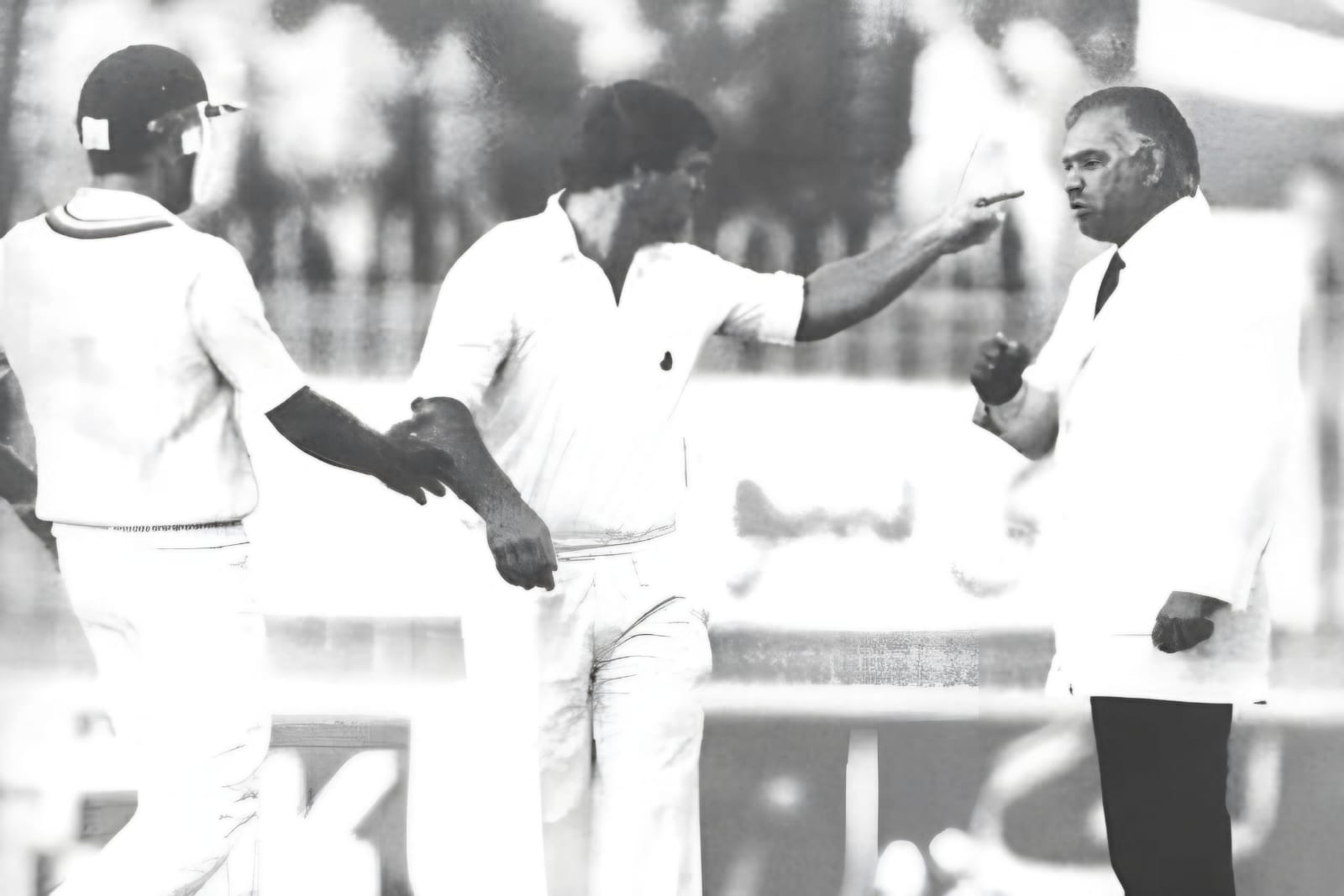
Escalation and Resolution: A Standoff and an Apology
The next day Rana refused to continue the match until Gatting apologized. With neither side backing down initially, the game was halted.
Finally, through pressure from the England and Wales Cricket Board (ECB) and a written apology from Gatting, the situation was resolved.
It’s believed that Pakistan captain Javed Miandad may have played a role in instigating Rana’s stance.
A Lasting Legacy: Captured by the Lens
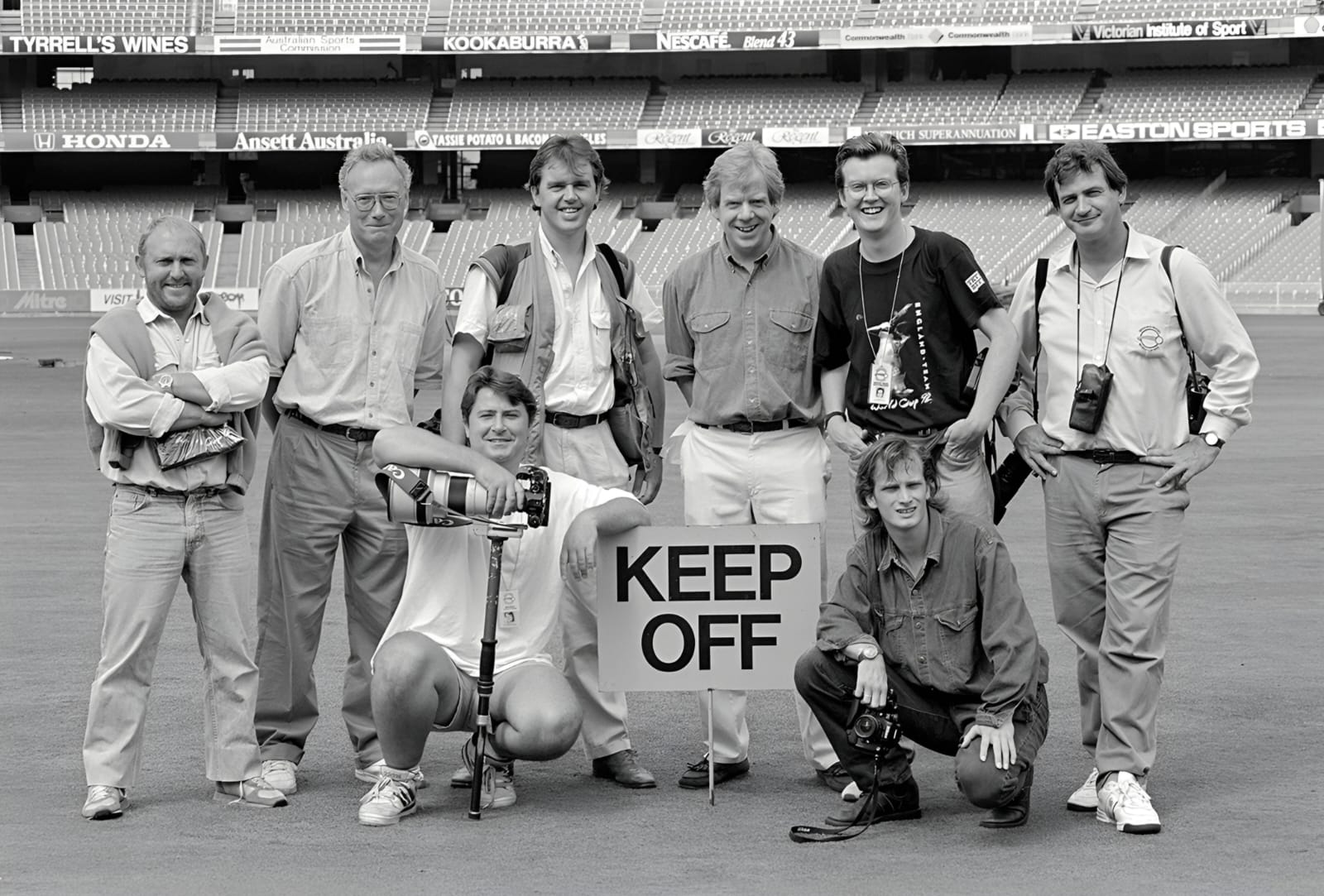
The incident was captured by photographer Graham Morris, whose picture of the confrontation between Rana and Gatting became iconic.
This photo holds a similar place in cricket history as the image of the last ball of the tied Test of 1960-61.
Beyond the Controversy: Shakoor Rana’s Cricket Roots
While the Faisalabad Test overshadows his career, Shakoor Rana also had a playing career as a right-handed batsman and fast bowler.
He played 11 first-class matches for teams like Railways, Lahore, and Punjab.
His umpiring debut came in the 1974–75 Lahore Test against West Indies. Interestingly, his two brothers, Shafqat and Azmat Rana, also played Test cricket, while another brother, Sultan Rana Jr., became a cricket administrator.
The Cost of the Clash: A Career Cut Short
Unfortunately, the controversy significantly impacted Shakoor Rana’s umpiring career. Despite Gatting playing in many more Tests, Rana only received opportunities to umpire in two more Tests after the incident.
Conclusion: A Controversial Legacy
Shakoor Rana’s legacy is a complex one. While he is remembered for his fiery on-field clash with Mike Gatting, he was also a cricketer and an umpire with a prior career.
The Faisalabad Test incident undoubtedly overshadows his achievements, but it also serves as a reminder of the importance of sportsmanship and fair play.
James Paul is a former first-class cricketer and passionate cricket analyst. His decades of experience on the field and his love for the game shape his insights into the strategies and personalities that define world-class cricket.
